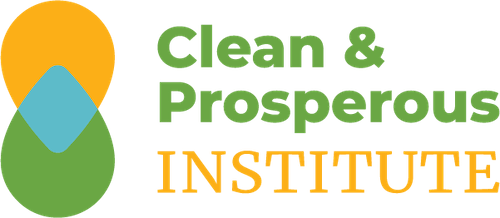Join Us May 14 in Downtown Seattle
We are thrilled to announce that Sarah Severn, Director of Outreach at Clean & Prosperous Institute, is delivering the keynote at CALSTART’s upcoming member symposium in downtown Seattle! Sarah has an unparalleled career in sustainability, and she is currently leading our work to advance the electrification of medium- and heavy-duty trucks.
The symposium is CALSTART’s premier member event, where industry leaders will unite to protect hard-won progress and seize new opportunities in clean transportation. At this event, you can gain insights, foster collaboration, and drive action alongside top innovators.
It’s bound to be a great event. Register today: https://calstart.org/event/member-symposium-2025/
Major ZEV Wins at Home and Abroad
The uptake of zero-emission vehicles (ZEV) continues to grow at home and abroad – despite headwinds at the federal level.
Here at home: Our partners in California announced that they are investing in 1,000 new zero-emission school buses! Electric school buses are a win-win-win:
- They improve the health of students and school communities by reducing exposure to harmful diesel exhaust
- They increase educational attainment by addressing cognitive challenges caused by unhealthy and unsafe air
- They reduce greenhouse gas emissions; CA’s investment is the equivalent of taking 4,000 cars off the road annually

Read more from the California Air Resources Board.
And abroad, March 2025 was Europe’s second-best month ever for electric vehicle sales! Here are the details:
- Plug-in vehicle registrations grew 22% year-over-year, miles ahead of overall vehicle market growth, which increased by 3%
- Fully-electric vehicles accounted for the vast majority of new registrations
- In February 2025, 63% of car sales in Europe had some kind of electrification
Clean & Prosperous Institute will be in Europe later this month for our fifth Study Mission. We look forward to celebrating our shared successes around electrification, learning from each other, and cultivating exciting new partnerships.
Congress Moves to Repeal CA Clean Vehicle Policies
Under the federal Clean Air Act, states have two options for regulating pollution from vehicles: they can stick with federal minimum emissions standards or adopt more protective standards used in California, Oregon and many other states. Washington is one of 17 states, in addition to Washington D.C., that adopts some or all of these more protective standards—together, these states make up more than 40 percent of the U.S. vehicle market.
Earlier this week, the House of Representatives voted to repeal the waiver that allows California to adopt these more stringent clean car and clean truck policies. This not only impacts California – it impacts the jurisdictions across the country like Washington that have adopted these policies as their own. You can find more information in this article from the Associated Press.

Washington’s adoption of California’s clean car and clean trucks rules is vital for our efforts to decarbonize, catalyze the clean energy economy, and mitigate the effects of climate change. A state analysis found that without these vehicle emissions standards, in 2030 Washington’s EV adoption rate would be 59 percent, versus 68 percent with the more ambitious standard in place.
From the 2024 Annual Report by the EV Council: “…any combination of [vehicle emissions standards for clean trucks] delay and federal repeal of [Inflation Reduction Act] tax credits could add one million metric tons of carbon pollution in 2030, making it impossible to meet the state’s statutory emissions limit.”
It’s also worth noting that market-based policies – like the Climate Commitment Act and these vehicle emissions standards – tend to give businesses more flexibility and further incentivize decarbonization.
Grist Highlights WA’s Leadership
A recent article from Grist highlighted Washington’s leadership on climate and clean energy, and how policies like the Climate Commitment Act build resilience and independence in the face of changing federal policies.
From the article:
The state’s [Washington’s] voters last fall resoundingly rejected an attempt to repeal a landmark law that caps emissions and raises money from polluters to install energy-efficient heat pumps, electrify ferries, and put solar panels on public buildings.
